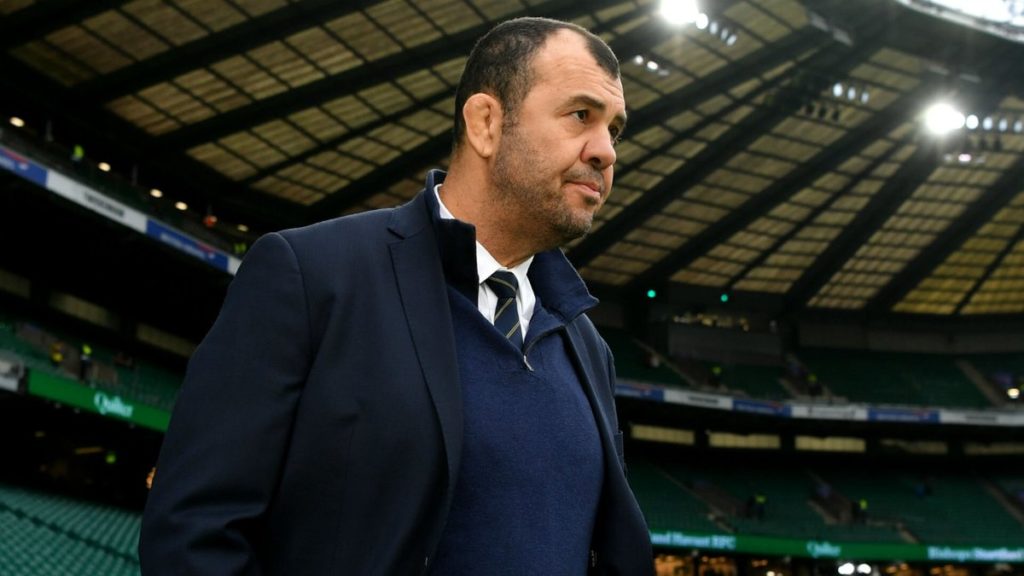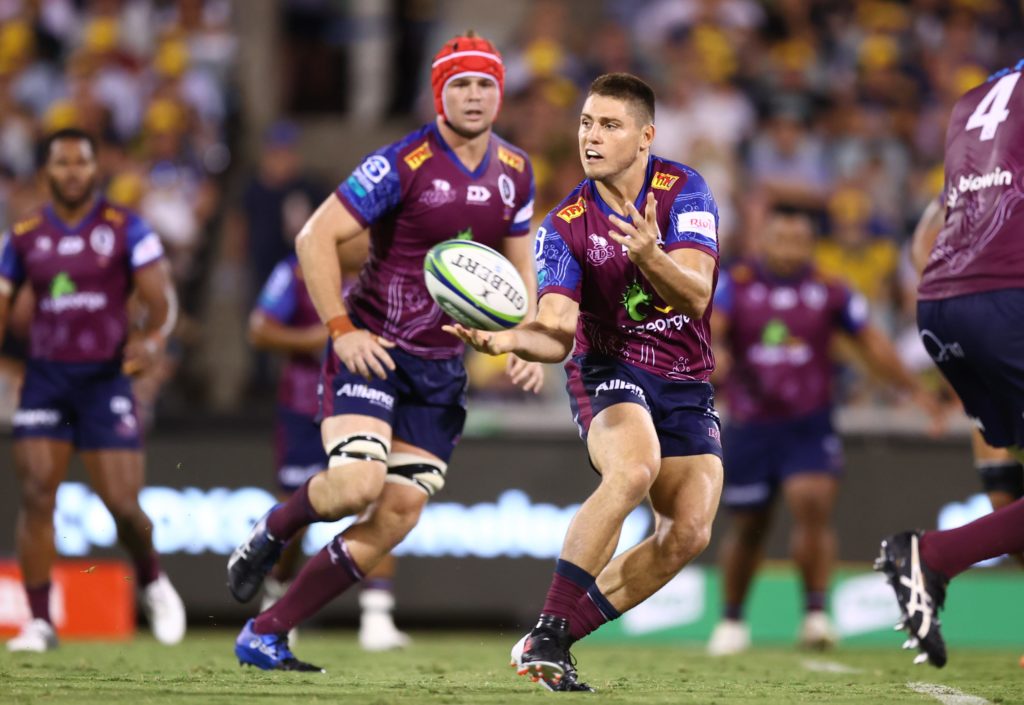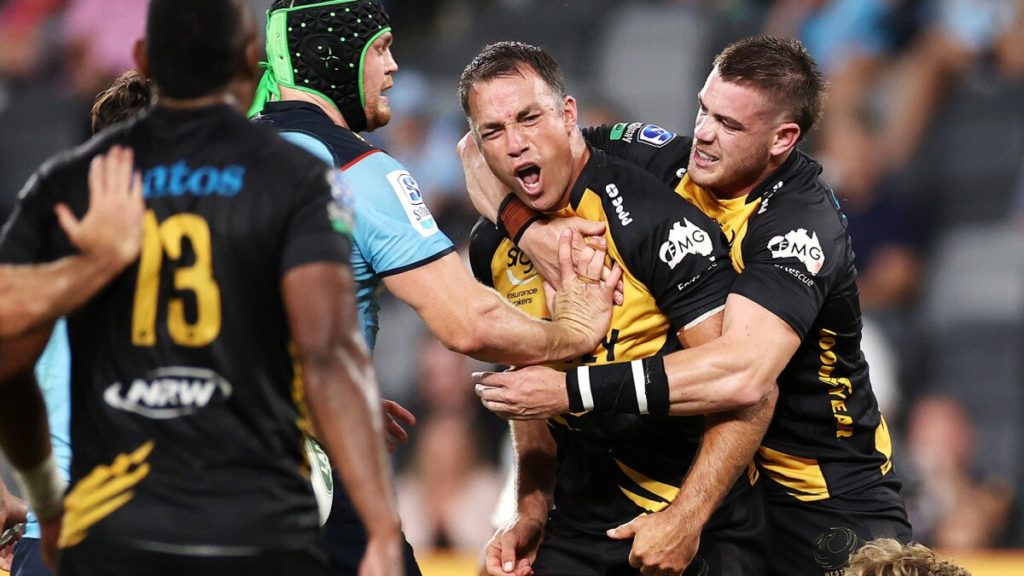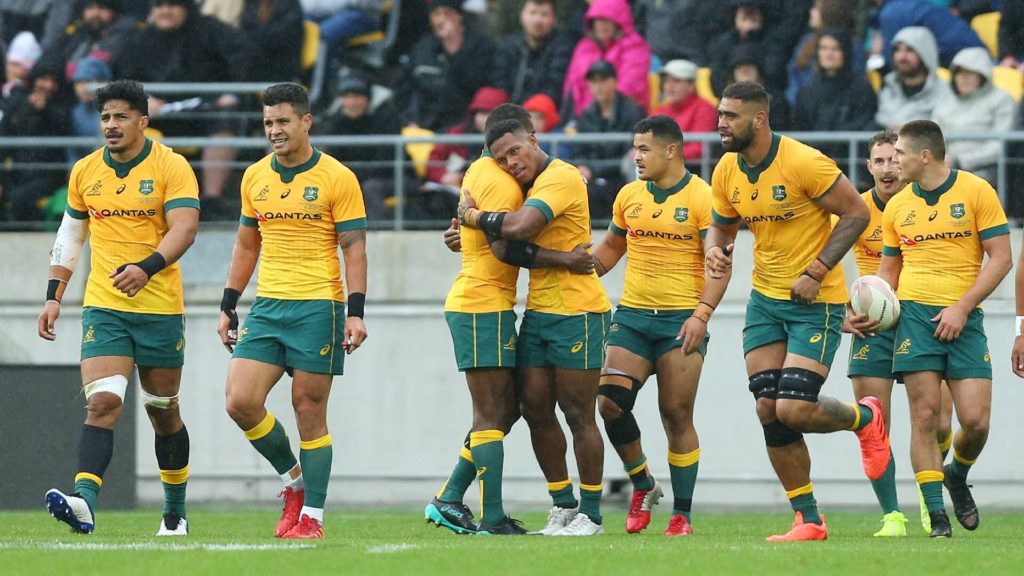In the weeks after the Force and Rebels were pitted against one another for survival in 2017, then-Wallabies coach Michael Cheika urged a handful of scribes to consider pushing an Australian domestic tournament.
Let’s go it alone, he advocated at the kitchen table of his Eastern Suburbs home.
If New Zealand doesn’t want to join, they’ll realise flying over Australia across the Indian Ocean to South Africa isn’t practical. Let’s keep all of Australia’s Super Rugby franchises and, yeah, it might be tough initially but once the broadcasters come around to it, the competition will grow and we can look to adding more teams, was the gist of the chat.
Cheika added New Zealand Rugby would come to the drawing board and eventually ask for a trans-Tasman competition to start up.

The Australian Rugby Union agreed the idea had merit, but they weren’t prepared to walk away from the SANZAAR partnership and the assurance of dollars.
You couldn’t blame them. After all, Australia was living hand to mouth.
But it seemed blindingly obvious the game was sinking to oblivion.
COVID-19 eventually ended the inevitable: Super Rugby was a broken model.
Cheika’s vision came to light, with the respective Super Rugby AU and Aotearoa competitions quickly being introduced following the closure of borders.
Super Rugby’s major Australian competitors in the NRL, AFL and even the A-League have a positive Australian narrative out of each weekend they play.
Former Wallaby Rod Kafer
Rod Kafer, the sharpest mind in Australian rugby, said the following shortly after the AU competition got underway: “There is not a single measure by which you could say that Super Rugby has been good for Australian rugby and in recent years, especially, we’ve created players who are mentally scarred by consistent losses to Kiwi teams.
“Super Rugby’s major Australian competitors in the NRL, AFL and even the A-League have a positive Australian narrative out of each weekend they play.
“Australia’s biggest rugby stars spend more time playing overseas than they do in Australia, when you factor in internationals and Super Rugby tours.
“Meanwhile, aspiring rugby players and fans of the game are swamped with stars of all the other major codes.”
Less than 12 months on, Queensland Rugby is hoping 50,000 people will pack Suncorp Stadium to watch the Reds host the Brumbies in the Super Rugby AU final.
All season the Reds’ faithful have been returning.

They had more than 20,000 for their come-from-behind 24-22 epic against the Brumbies last month.
The Force, meanwhile, would have packed out HBF Park had a three-down snap COVID lockdown not been announced in the hours before the game. They still managed 6,500 despite the spectre of COVID and the pending lockdown, as the Force made history by knocking over the previously unbeaten Reds to seal their maiden finals appearance.
In the nation’s capital, crowds have been above average compared to previous years.
It comes as no surprise the Waratahs’ highest crowd attendance of the season was when they hosted the Brumbies at the Sydney Cricket Ground. By the time the Sydney Football Stadium is opened mid-2022, the Waratahs’ young brigade will be on the rise and the locals will be back.
On the field, the quality has risen.
The Force, last year they were thrown in the deep end, they had a pre-season knowing they would be in Super Rugby, they’ve recruited well and a much-improved side, the Reds are a better side than last year and I genuinely believe we’re ahead of where we this time last year.
Brumbies coach Dan McKellar on the standard of Super Rugby AU
Wallabies coach Dave Rennie, who didn’t shy away from saying standards needed to improve last year, has said a number of times the competition is considerably stronger than 2020.
Brumbies coach Dan McKellar agreed.
“I think the Australian competition this year has been a real quality competition,” he told The XV.
“The Force, last year they were thrown in the deep end, they had a pre-season knowing they would be in Super Rugby, they’ve recruited well and a much-improved side, the Reds are a better side than last year and I genuinely believe we’re ahead of where we this time last year, it’s just about taking the opportunities that we create and last night [the Brumbies’ 21-9 qualifying final win over the Force] there were times we were our own worst enemy. We look forward to the Crusaders and those challenges, but at the moment we’re not thinking about that at all.”
As McKellar says, with the benefit of a pre-season and strong recruitment drive, the Force have drastically improved.

They’ve got depth across their squad and hardened playmakers in the inside channels and test experience in the front-row.
Wallaby Sitaleki Timani has only added to those stocks, while World Cup-Wallaby Izack Rodda will touch down in Perth in the coming months after signing with the Force from France too.
Yet, with Super Rugby AU showing signs of success, Rugby Australia is likely to do away with the tournament to join a trans-Tasman competition. Two Pasifika sides are expected to join from 2022 to make it a 12-team competition.
Two leading Australian rugby figures believe keeping Super Rugby AU and using it as a springboard to a trans-Tasman competition after the respective domestic tournaments could be of benefit.
It’s time to take a risk and not be crippled by the fear of getting it wrong because things have not been trending in the right direction.
Rod Kafer
“I don’t think there’d be too many complaints around that,” McKellar said.
“I think Australians love rivalry and tribalism and we’re certainly seeing that particularly with ourselves and the Reds currently, so if it continued down that same path where we had Super Rugby AU and then we go into a trans-Tasman comp, I’d have no issues with that. Equally, a full-fledged trans-Tasman from round one is a good competition too.”
Reds general manager Sam Cordingley agreed.
“I think that’s a good model,” he said.
“It’s not just about Australian teams winning, it’s about building that tribalism up. I think we’ve created a level of interest, haven’t we? The support is there. We’re hoping to get close to 50,000 there this week, so the model allows for competition internally and the Kiwis don’t get to see what we’re doing on a week-to-week basis, and merging two competitions thereafter would seem a good thing.”
Adding to its attraction is Australian rugby has scrapped its National Rugby Championship.

All the while New Zealand has its highly successful ITM Cup, which allows for teams like the Crusaders to pick directly out of Canterbury and keep continuity.
Cordingley added a domestic tournament followed by a trans-Tasman competition involving representation from Japan’s Top League could add a new dimension with the bonus of it being in roughly the same time zone.
“I think it’s valid,” the former Wallaby said.
“We’re playing against each other regularly, it’s building tribalism and it’s a competition the supporters are interested in. Whether it involves Japan in the future it’s something we’d be supportive of. If you look at the alignment of the competitions currently, you’ve got the Japan Top League, Aotearoa and AU playing and it’d seem there’s a good window to merge these competitions into something else meaningful following these competitions because we end at the same time.”
Many believe Australian rugby needs New Zealand Rugby.
But as Kafer points out, it hasn’t helped Australia for the best part of two decades.
“It’s time to take a risk and not be crippled by the fear of getting it wrong because things have not been trending in the right direction,” the 1999 World Cup-winner said last year.
“We’ve clearly been getting it somewhat wrong throughout Super Rugby, or the Wallabies would not be sitting seventh in the world and at the risk of dropping below countries like Japan in the rankings.”
A trans-Tasman tournament undoubtedly has its benefits and will prevent a five-team domestic competition from going stale.
Yet if there’s anything Australian rugby has learned over the past 12 months, it’s that tribalism remains important and having Australians wake up the morning after a victory makes everyone feel better about the state of the game.



Comments
Join free and tell us what you really think!
Sign up for free